Essay by
BILAHARI KAUSIKAN.
Former Permanent Secretary for Foreign Affairs
Ministry of Foreign Affairs, Singapore
(Currentlty Ambassador-at-Large)
6 OCTOBER, 2015
Malaysia is undergoing a systemic change that has profound consequences for Singapore.
What do most Singaporeans make of recent events in Malaysia? Bersih. Pesaka. 1MDB. A Deputy Prime Minister sacked. Protests and counter-protests.
Are we so inured to commotions across the Causeway that they seem no more than the faint tolling of distant bells, evoking only bemusement and schadenfreude? Our system works, so shrug and tend our own garden.
If this is the attitude, it is mistaken. We are indeed different. But I believe Malaysia may be on the cusp of a systemic change that could have profound implications for us.
Since 1957, first Malaya then Malaysia, was premised on a political and social compact that had Malay dominance as its cardinal principle. So long as this was not challenged, other races could have their own space. In political terms, this compact was reflected in a system structured around an alliance of race-based political parties with the dominant Malay party – United Malays National Organisation or UMNO – at its centre.
The Chinese were represented by the Malaysian Chinese Association (MCA), later joined by Gerakan; the Indians by the Malaysian Indian Congress (MIC). Two opposition parties, the Democratic Action Party (DAP) and Parti Islam SeMalaysia (PAS), were in principle multiracial, but in practice largely Chinese and Malay and in any case were peripheral.
It was our refusal to accept the system’s cardinal principle that led to Separation from Malaysia in 1965. But it was a system that had its own coherence and until relatively recently, it did not serve Malaysia badly. And despite the complexities of bilateral relations and occasional periods of tension, over the last 50 years, it was a system we learnt to work with, while going our own way.
Pressure Point–Religion
That familiar system is now under immense stress. It is not certain that it can hold together.The pressure point is religion. Arab influences from the Middle East have for several decades steadily eroded the Malay variant of Islam in which adat or traditional practices coexisted with the Quran in a syncretic, tolerant synthesis, replacing it with a more austere and exclusive interpretation of Islam. This is one aspect of a broader process of globalisation which is a sociocultural and not just an economic phenomenon. It has changed the texture of Malaysian society, I think irreversibly.
It is impossible for any country to insulate itself from globalisation. Religion in Singapore is not immune from globalisation’s consequences, and not just in our Muslim community. Evangelical Christianity is one example. But Singapore is organised on the principle of multiracial meritocracy. So long as this is accepted by all races and religions as the foundation of our identity, the most corrosive political effects are mitigated. In the Singapore system, God – every God – and Caesar are separate and so all Gods must perforce co-exist, with the state playing the role of neutral arbiter.
Not so in Malaysia. The cardinal principle of Malay dominance is enshrined in the Constitution, which also places Islam as the first component in the definition of a Malay. This makes the mixture of religion and politics well-nigh inevitable. Umno politicians have been unable to resist the temptation to use religion for electoral advantage. They are responding to the logic of the system as it has evolved.
In 2001, former Prime Minister Mahathir Mohamad made a fundamental political error when he tried to undercut PAS by declaring that Malaysia was already an Islamic state. A constitutional controversy ensued. But the most damaging consequences were political not legal. Tun Dr Mahathir’s incautious declaration gave a sharper political focus to the changes in the interpretation of Islam that were under way and catalysed a competitive dynamic in which those inclined to religious moderation were inevitably outbid and overwhelmed.
The result has been an increasingly pronounced emphasis on religion in UMNO’s political identity and a significant and continuing narrowing of the political and social space for non-Muslims.
Surveys show that Malaysian Malays privilege Islamic credentials over other qualities they look for in their leaders. A Merdeka Centre survey this year revealed that 60 per cent of Malaysian Malays polled identified themselves as Muslims first rather than Malaysians or even Malays. Demography accentuates the political impact of these attitudes. In 1957 the Chinese constituted 45 per cent of Malaya (West Malaysia). In 2010, they constituted only 24.6 per cent of Malaysia including East Malaysia. Malay fertility rates are significantly higher than both Chinese and Indians.
In the 2013 Malaysian General Election, the ruling Barisan Nasional (BN) coalition got only 13 per cent of the Chinese vote. Two days after the election, Utusan Malaysia, an UMNO mouthpiece, pointedly asked “Apa Lagi Cina Mau?” (What more do the Chinese want?)
The question was provocatively phrased, but not entirely unreasonable. Prime Minister Najib Razak tried hard to win back Chinese votes but got almost nothing for his efforts. MCA won only seven seats. Gerakan was wiped out. The DAP won 38 seats, the largest number in the opposition coalition.
A new system in the making?
The Chinese parties in BN had clearly lost the trust of Chinese voters. Can MCA win back Chinese votes? Doubtful. MCA is obviously powerless to stem the narrowing political and social space for non-Muslims; the fecklessness of its leaders exposed by constant scandals and internal bickering.
In 2013, BN lost the popular vote but retained its parliamentary majority because of the 47 seats it won in East Malaysia. Native East Malaysians are not ethnically Malay but are classified as bumiputera. Some in UMNO began to question whether it was really necessary to work with the Chinese at all. The declining numbers of Chinese in the Malaysian population will sooner or later make them electorally irrelevant to Umno and BN had already retained power without their votes.
Nor can the opposition coalition of the DAP, PAS and Anwar Ibrahim’s Parti Keadilan Rakyat – Pakatan Rakyat (PR) – form a new multiracial system. PR was always a motley crew. Although its component parties are in theory multiracial, they have nothing in common except the ambition to displace BN. Only Anwar’s charismatic personality and political skills held them uneasily together.
Anwar is now in jail and PR has fallen apart. PAS has left. Without Anwar, Keadilan’s future is bleak. The DAP is subject to the demo- graphic constraints of a falling Chinese population and is unlikely to make substantial electoral advances beyond its present strength, although it will probably retain what it now holds. PR’s successor – Pakatan Harapan – a coalition of the DAP, Keadilan and a minor breakaway faction from PAS, is a forlorn hope (pun intended).
PAS has purged its moderate leadership and is now led by the ulama. UMNO is increasingly relying on religion to legitimise itself. UMNO and PAS may eventually form some sort of de facto if not de jure alliance that could be the core of a new ruling system. There may be token ornaments of other races, but the Malaysian system will then comprise an overwhelmingly dominant Malay government with a DAP-led Chinese opposition. This will be potentially explosive.
I do not know if such a system will really replace the current system, but it certainly seems possible, even probable. It will not happen overnight. But the controversy over 1Malaysia Development Berhad (1MDB) could well hasten its emergence. The recent demonstrations seem to foreshadow such a development.
Struggle for Power in UMNO
The anti-government Bersih demonstrations held in late August this year (2015) were, despite a sprinkling of other races, predominantly Chinese affairs. PAS, which had joined previous Bersih demonstrations, stayed away. The organisers claimed the demonstrations were apolitical, but the DAP with Keadilan clearly played significant roles.
Last month, a pro-government counter-demonstration was organised by Pesaka – a right-wing Malay group ostensibly devoted to silat, the Malay martial art. The demonstration was almost entirely Malay, positioned as defending Malay rights and marked by fierce racial rhetoric. Before the demonstration, posters were displayed, captioned “Cina turun Bersih, sedialah bermandi darah” (Chinese who attend Bersih, be ready to be bathed in blood) which depicted a Bersih supporter being slashed with a parang. A flier with a similar slogan was found at DAP headquarters.
UMNO denied organising the demonstration. Dato’Seri Najib did not attend but said he had no objections to Umno members doing so. The President of Pesaka is an UMNO leader. Another UMNO politician, who was one of the driving forces of the Pesaka demonstration, proudly admitted he was racist because it was under the Constitution.
Thankfully, violence at these demonstrations was avoided by the strong police presence. But the demonstrations certainly raised the temperature of an already racially fraught atmosphere.
Although the authorities denied it, the affray that broke out in July at Low Yat Plaza, a mainly Chinese shopping area in Kuala Lumpur, after a Malay youth was accused of stealing a mobile phone, was certainly racial. It exposed the tinderbox Malaysia had become.
Shortly after news broke about US$700 million (S$1 billion) believed to be from 1MBD being traced to what was alleged to be Mr Najib’s personal account, a Putrajaya spokesman said: “The Prime Minister has not taken any funds for personal use.”
UMNO has always operated through a system of patronage. If this is what the spokesman was hinting at, then Dr Mahathir’s accusations against Mr Najib ring hollow. Did he not preside over the same system and for far longer than any other Malaysian prime minister?
This system also means that Mr. Najib is in no imminent danger of being forced from office so long as he holds the majority of UMNO divisions and retains Malay support. Frustration may account for Dr Mahathir’s attendance at the Bersih demonstration which I do not think has raised the good doctor’s standing with the Malay ground.
The 1MDB scandal is less about corruption than about a struggle for power within UMNO. Dr Mahathir seems to have expected to exercise remote control even though he was no longer prime minister. Among his grievances with his successors were their warming of ties with Singapore, Mr Najib’s decision to settle the railway land issue, cooperation on Iskandar Malaysia (IM) and the refusal of both Tun Abdullah Badawi and Mr Najib to proceed with his pet white elephant: the “crooked bridge”. Dr Mahathir wants to replace Mr Najib with someone more pliable.
The intra-UMNO power struggle is not over. Mr Najib retains his office but has been politically damaged. Dr Mahathir’s reputation may have been dented, but he still has a following within UMNO and the Malay public.
Mr. Najib cannot allow himself to be outflanked on the right. Two days after the September demonstration, he attended a Pesaka gathering. He praised Pesaka members as being “willing to die” for the government and said “Malay people can also show that we are still able to rise when our dignity is challenged, when our leaders are insulted, criticised, shamed”, adding, “We respect other races. But don’t forget: Malays also have their feelings. Malays also have their limits.”
What next?
A former minister, Tan Sri Zainuddin Maidin, has said that “if Najib succeeds in uniting UMNO and PAS, then I am confident the Malays will forgive his grave mistakes”, adding that “after fulfilling this large and sincere task” he should step down and hand power to former deputy prime minister Muhyiddin Yassin.
I do not know if Mr. Najib feels he has committed “grave mistakes”. But he certainly will not hand over power to a man he unceremoniously sacked. Still, Mr Zainuddin is probably not wrong about anyone who brings UMNO and PAS together becoming a Malay hero. It may not be Mr. Najib, but the trajectory of political developments in Malaysia already seems to point in that direction.
Malaysia and Singapore are each other’s second-largest trading partner. Malaysia is Singapore’s sixth-largest investment destination and we are the top investor in IM. Every day tens of thousands of Malaysians commute across the Causeway to work in Singapore. It is in our interest to see Malaysia stable with a healthy economy.
Mr. Najib understands that Malaysia and Singapore need each other. So far and unusually we have not figured very much in the controversies. Dr Mahathir did trot out his tired line about Singapore Malays being marginalised. But it did not catch fire. Did the government dampen the spark? No way of knowing for sure but if it did, it is one more black mark against Mr Najib in the old man’s book.
We, of course, have no choice but to work with whatever system or leader emerges in Malaysia. But some systems will be easier to work with than others. And the current heightened state of racial tensions suggests that we should not assume that the transition from one system to another will necessarily be peaceful.
It is my impression that many young Malaysian Chinese have forgotten the lessons of May 13, 1969. They naively believe that the system built around the principle of Malay dominance can be changed. That may be why they abandoned MCA for the DAP. They are delusional. Malay dominance will be defended by any means.
Any new system will still be built around this principle, and if it has some form of UMNO-PAS collaboration at its centre, enforcement of this principle will be even more rigorous with even less space for non-Muslims.
The respected Malay poet and writer Pak Samad recently warned “the way race issues are played up… it is not impossible that things will peak into a state of emergency”.
Pak Samad is a member of the DAP and he was appealing to the government to take a more equitable attitude towards all races. But his views and those of some idealistic young urban Malays are exceptional and, during an intra-UMNO power struggle when the banner of Malay dominance is raised particularly high, utterly irrelevant.
Singaporeans should also note that no country’s domestic politics exists in a geopolitical vacuum.
Chinese Ambassador’s Remarks
In the midst of these unfolding developments, China’s Ambassador to Malaysia made his way to Kuala Lumpur’s Chinatown. Close to where only a few days previously the police had to use water cannons to disperse a potentially violent anti-Chinese Pesaka-led demonstration, the ambassador read out a statement that among other things pronounced the Chinese government’s opposition to terrorism, any form of racial discrimination and extremism, adding for good measure that it would be a shame if the peace of Petaling Street was disrupted by the ill-intentioned and that Beijing would not stand idly by if anything threatened the interests of its citizens and Malaysia-China relations.
Under other circumstances these sentiments would perhaps have passed notice. But the timing and context laid the Ambassador’s words and actions open to disquieting interpretations.
Was it just bad judgment? What was he trying to do? If the ambassador was trying to help the Malaysian Chinese, then he failed miserably. He probably made things worse for them by confirming the worst suspicions of the Malay right wing.
But were the interests of Malaysian Chinese even a consideration? Was the intention to highlight a rising China’s clout? The Chinese Foreign Ministry spokesman defended the ambassador’s visit to Petaling Street as “normal” and emphasised China’s adherence to the principle of non-interference. But this was of course what she would have said irrespective of China’s intentions.
More telling perhaps was the apparent confusion over whether or not the Chinese ambassador should be summoned to explain himself. This should have been obvious. A retired Malaysian diplomat who used to deal with China pointed out the dangerous precedent that would be set if no action was taken. But different Malaysian ministers contradicted each other, with a clearly frustrated Foreign Minister Anifah Aman finally telling them all to leave it to Wisma Putra.
Was this the consequence of China’s influence? Possibly. In the end, some sort of meeting with Wisma Putra seems to have occurred. Deputy Prime Minister Ahmad Zahid Hamidi subsequently announced that the Malaysian Cabinet decided to “call in” the Chinese ambassador (he was careful to make clear the ambassador was not being “summoned”).
Lesson for Singapore
We cannot solve other people’s problems. Malaysians must work out their own destiny and we will have to live with their choices.
Are we completely immune to contagion from Malaysia? After 50 years, does our collective Singapore identity now trump racial identities? Maybe under some circumstances. Optimistically, perhaps even most circumstances. But under all circumstances?
I doubt it. Let us wish Malaysia well and hope that the worst does not occur.But it would be prudent to take no chances and prepare ourselves as if it might. The first step is for all Singaporeans to understand what is happening in our neighbourhood and realistically appreciate our own circumstances.
Deterrence and diplomacy are necessary to reduce the temptation that some in Malaysia may have to externalise their problems and minimise the bilateral friction that will sometimes be unavoidable. Strong deterrence and agile diplomacy must be underpinned by national cohesion which in turn rests on a foundation of common understandings.
Of late it seems to have become fashionable for some sections of our intelligentsia to downplay or even dismiss our vulnerabilities. Some political parties tried variants of this line during our recent General Election. Are they blind and deaf to what is happening around us? Is their desire for notoriety or political advantage so overwhelming as to make them indifferent to the consequences?
Malaysia is not the only concern. The haze is a daily reminder that all is not well down south too. This is not the most salubrious of neighbourhoods.
- BILAHARI KAUSIKAN.
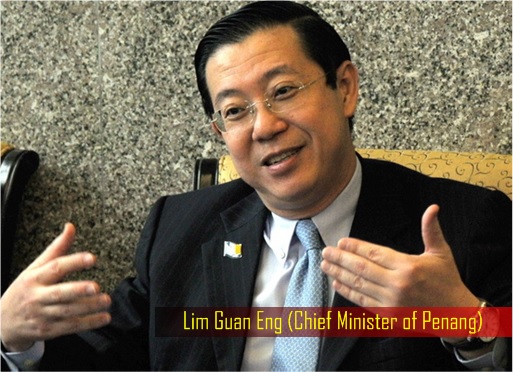
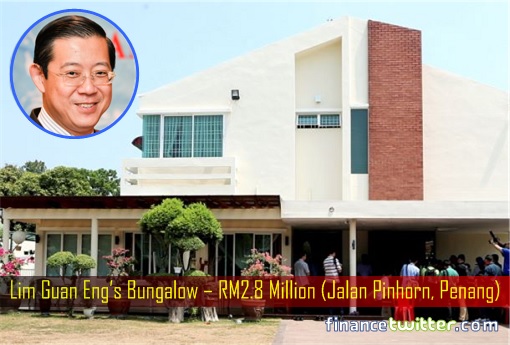
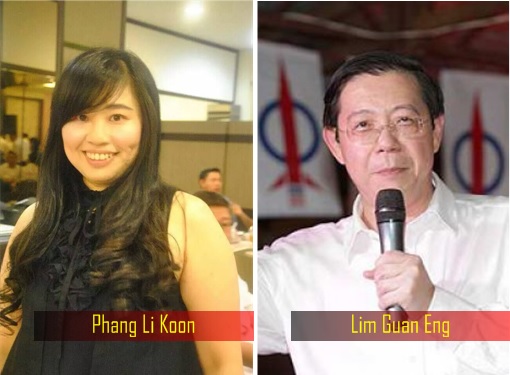

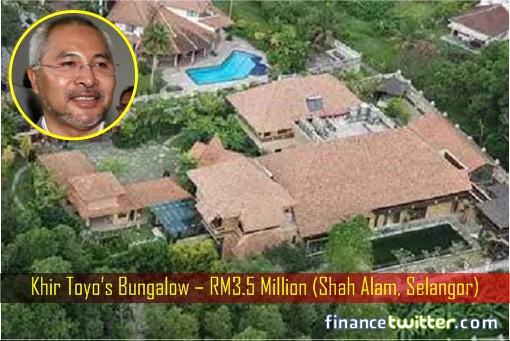
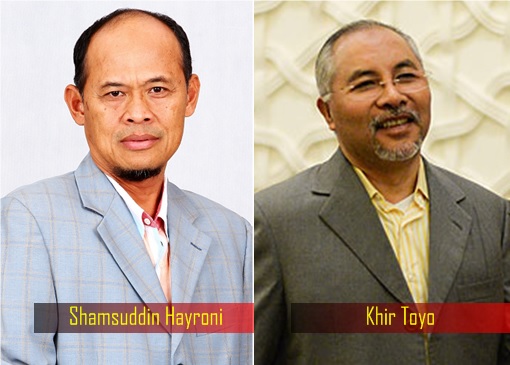
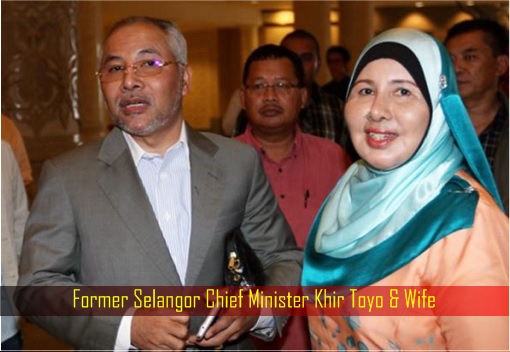
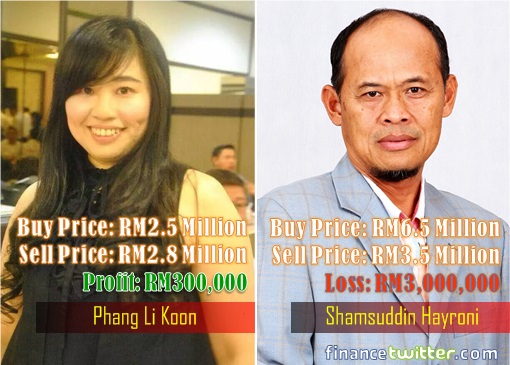
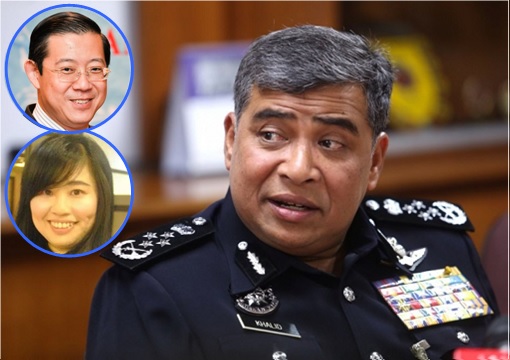
 After Najib was appointed, Mahathir says he began to realise that Najib actions did not fit that of a prime minister.
After Najib was appointed, Mahathir says he began to realise that Najib actions did not fit that of a prime minister. Muhyiddin says that while he may not be wearing the same shirt as Mukhriz, they both belong to the same group of those who were shunned in Umno.
Muhyiddin says that while he may not be wearing the same shirt as Mukhriz, they both belong to the same group of those who were shunned in Umno. "I know there are many Umno members in this hall but they are not wearing the uniform."
"I know there are many Umno members in this hall but they are not wearing the uniform." At the same time, she also urges for a discussion on jailed former opposition leader Anwar Ibrahim's release.
At the same time, she also urges for a discussion on jailed former opposition leader Anwar Ibrahim's release. "In Norway we can be safe, but here, we go to the mosque and our shoes can go missing," he points out.
"In Norway we can be safe, but here, we go to the mosque and our shoes can go missing," he points out. Husam says the calls for Najib's resignation should not be turned into a racial or religious issue.
Husam says the calls for Najib's resignation should not be turned into a racial or religious issue. 2.50pm: True to his fiery style, Kuala Langat MP Abdullah Sani Abdul Hamid stirs up the hall when he takes the stage and rallies workers against Najib.
2.50pm: True to his fiery style, Kuala Langat MP Abdullah Sani Abdul Hamid stirs up the hall when he takes the stage and rallies workers against Najib. "YB Lim, I take my hat off to you. We are the new breed in Umno. The Malays need not be afraid of Lim Kit Siang. Be afraid of Najib.
"YB Lim, I take my hat off to you. We are the new breed in Umno. The Malays need not be afraid of Lim Kit Siang. Be afraid of Najib. "The beauty of being the emcee, speaker and time keeper is, there is no one to ring the warning bell."
"The beauty of being the emcee, speaker and time keeper is, there is no one to ring the warning bell." 2pm: Former premier Dr Mahathir Mohamad is on centrestage along with Muhyiddin, Zaid and other leaders endorsing the Save Malaysia movement.
2pm: Former premier Dr Mahathir Mohamad is on centrestage along with Muhyiddin, Zaid and other leaders endorsing the Save Malaysia movement. .45pm: Selangor Menteri Besar Azmin Ali arrives at the venue. He is greeted with cries of “Selamatkan Malaysia!” and “Bebas Anwar!” The original Citizens' Declaration document was criticised by Anwar’s supporters for not explicitly including a demand to release him from prison.
.45pm: Selangor Menteri Besar Azmin Ali arrives at the venue. He is greeted with cries of “Selamatkan Malaysia!” and “Bebas Anwar!” The original Citizens' Declaration document was criticised by Anwar’s supporters for not explicitly including a demand to release him from prison. Zaid is already in the hall, together with former Umno leader Khairuddin Abu Hassan and former PAS Youth leader Suhaizan Kaiat.
Zaid is already in the hall, together with former Umno leader Khairuddin Abu Hassan and former PAS Youth leader Suhaizan Kaiat. A crowd of close to 100 guests are waiting to enter the venue hall where 1,200 seats have been set up.
A crowd of close to 100 guests are waiting to enter the venue hall where 1,200 seats have been set up.